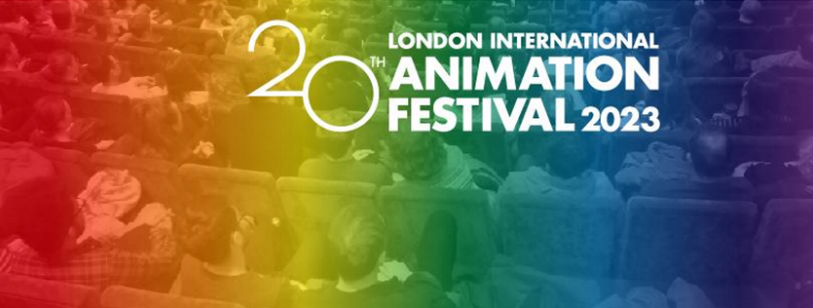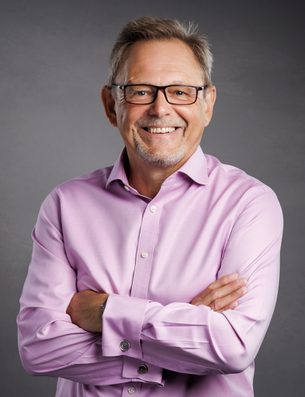News Story

To mark this year's London International Animation Festival (LIAF), Film London Animation Consultant Julian Scott sat down with Nag Vladermersky, founder, director and chief programmer of LIAF to discuss the latest trends and highlights of the festival.
Hi Nag, LIAF celebrates its 20th
edition this year. Can you tell us how it got started and how the festival has changed over the years?
To be honest, I sort of fell into the world of festivals. Prior to starting LIAF I was dabbling in making my own animated films. I was travelling the world in the 1990s and was lucky enough to get a grant from the Australian Film Commission to make a short animated film. So for 2 years I was stuck in Melbourne making this film (not the worst place to spend your time!) and when we finished I submitted it to several festivals. The film did well and I got invited to visit several festivals all over the world to screen it and talk about the film, meet other filmmakers etc and generally have a whale of a time. I came back to the UK in the early 2000s and realised that there was no stand-alone animation festival in London so I thought I’d set up a small weekend event to start with at the now-defunct Rupert Street Cinema in Soho to test the waters. I talked to as many people as I knew in the independent animation industry for advice etc and just leapt in. To my surprise there were queues around the block! Everything was done through word-of-mouth back then, not many people used the internet. We would fax entry forms back and forth to filmmakers and our FedEX freight bill to transport 35mm film prints was enormous! But it was obvious from these humble beginnings that there was a great interest to see these mostly-unseen films (outside of the film-festival world). So I decided to carry on.
I started by getting a small Lotteries For All grant for a few hundred quid and went from there. I didn’t make any money the first few years, it was really a huge labour of love. And I have always worked on a shoe-string and with a very small, incredibly dedicated team of similar enthusiasts. But over the years it has got bigger and bigger, we have moved venues several times, and now screen over 10 days at 4 London venues and have a worldwide audience of several thousand - thanks to our online streaming platform.
What separates the London International Animation Festival from other showcases?
We are very much a festival celebrating the independent side of the animation world and our main aim is to spotlight the work of these mostly unseen works by - what we consider to be - some of the most imaginative, creative and talented people in the world. Most of the other festivals include a mix of the commercial with the independent, which is fine, but we feel that most commercial films already get enough coverage. But independent animation is very much flourishing all over the world and we aim to show these films to as many people as possible. Many of the filmmakers attend and get a chance to meet the audience and talk about their films and we try to create an atmosphere where audience and filmmaker can mix and chat and generally have a good time! Hopefully giving the audience a chance to meet their heroes in the flesh will inspire and engender the next generation of animators. That’s what a huge part of the festival is all about.
LIAF presents the 2023 UK Animation Industry Event – 6 panels giving insider access to some of the hottest topics of the year. What issues are you most interested in exploring this year?
To celebrate our 20th birthday we have animation industry insiders looking back and forward to what has changed over the years and what the future may hold in future years for the world of animation. So we have 2 panels of experts from the industry reminiscing about the past as well as looking into their crystal balls and attempting to forecast what the future might bring. Another panel will be talking about the role of the animation producer, what they do and how do you get to become one? And another panel will be looking into a huge growth area in animation in the last couple of decades - animated documentaries. This panel will be talking about what the animated documentary form can bring in an era of deep fakes and misinformation. Another panel will be talking about a hugely important subject - neurodiversity in animation - and how it can benefit studios to work with this rich talent pool of neurodiverse animators they could be missing out on. And finally a panel of writers and producers will talk about the key steps in taking an animated feature film from script-stage to screen and how to keep control of your idea.
How long have you been working in animation and what types of changes have you noticed in the industry in recent years?
I started off in animation 30 or so years ago, mostly self-taught. Animation changes all the time and very rapidly. At the moment the buzz-word is around AI and how it could/will affect the industry. To be honest I’m steering away from the subject for the time being and it isn’t affecting LIAF (yet?) But as much as there are changes all the time I feel that it is comforting that there are as many people now continuing to make animated films with traditional techniques as there were 50 or more years ago. Certainly at LIAF we screen just as many films with traditional techniques (hand-drawn, puppet, pixilation, stop-motion, cutout, sand, paint-on-glass etc etc) as we do made with high-end CGI or any type of CGI. I feel like our audience finds it comforting to discover so many artists from all around the world telling these remarkable stories by using ‘relatable’, some would say ‘old-fashioned’, techniques. And some of the most innovative films we screen are the ones that are made with hybrid techniques - mixing and matching. So change is always good, I think, but it’s also important to be aware of the history of the craft.
What makes London such a good place for producing animation?
London is absolutely one of the centres of the animation world, some of the most innovative studios are based here - studios that produce visual effects, TV commercials, music videos etc for a global audience and for many of the biggest Hollywood films. There are also several amazing film-schools (RCA/UAL/NFTS/Middlesex/UEL/Westminster/Goldsmiths) producing the next generation of talent.
Hopefully LIAF goes some way towards knitting this together by feeding people with the astonishing films that are being produced globally and bringing them to London. As well as bringing over many of the world’s best animators to talk about their work and meet London-based animators and maybe future collaborators.
There are also several smaller but essential localised groups in London that are equally vital such as the London Animation Club which bring animators together on a more informal basis with monthly get togethers and screenings.
What needs to change to enable studios access to a rich seam of talent that they might be missing and for that talent to feel comfortable enough to engage?
Many of the animators whose work we showcase are some of the most talented and imaginative people working in any artform. Animation lends itself to some of the most creative minds out there and maybe studios could involve their staff in regular ‘brainstorming’ sessions to see what could come out of them. I think there are a lot of hidden talents out there and sometimes, if you work collaboratively, you’ll be surprised what could happen. It’s not always the people at the top who have the best ideas!
What is the best piece of advice you’ve been given in your career that you’d like to share?
Don’t give up! Perseverance is essential. And if you feel that you don’t know how to do something just ask someone for advice/help. Anything is possible!
Any top tips for those trying to get into the industry?
If you are lucky to do so - work in an area or industry that you have a passion for. If you love what you do then it might not seem so much like work.
Come to the festival and see what you might be missing out on! You’ll be surprised. These are some of the most mind-blowing films that have been made over the last year!

Nag Vladermersky
Nag Vladermersky is the founder, director and chief programmer of the London International Animation Festival (LIAF). Over 20 years LIAF has grown to become the UK’s longest-running and largest stand-alone animation festival, each year screening 250 shorts and features from 40 countries over 10 days and nights in several London venues and online for a worldwide audience. Throughout the year LIAF also tours festival highlights and other screening programmes around the UK and to several international festivals and events across the world. LIAF has attracted increasing international respect and recognition while progressing the unique visions of talented animators worldwide. He frequently travels to festivals, colleges and institutions across the UK and worldwide as a festival juror and delivers lectures and presentations on all aspects of animation.

Julian Scott
Julian Scott is a BAFTA-nominated Executive Producer. He has been developing, financing and co-producing feature films and television in the international arena for over 25 years. As animation consultant for Film London, his focus is on generating inward investment for London’s animation studios, by finding partners outside the UK seeking creative and financial soulmates and advising on the UK animation tax credits. Other areas of his work include tackling skills and creative gaps in the animation industry and lobbying to get proper recognition for animation in the UK creative sector and advising studios on business and creative development.